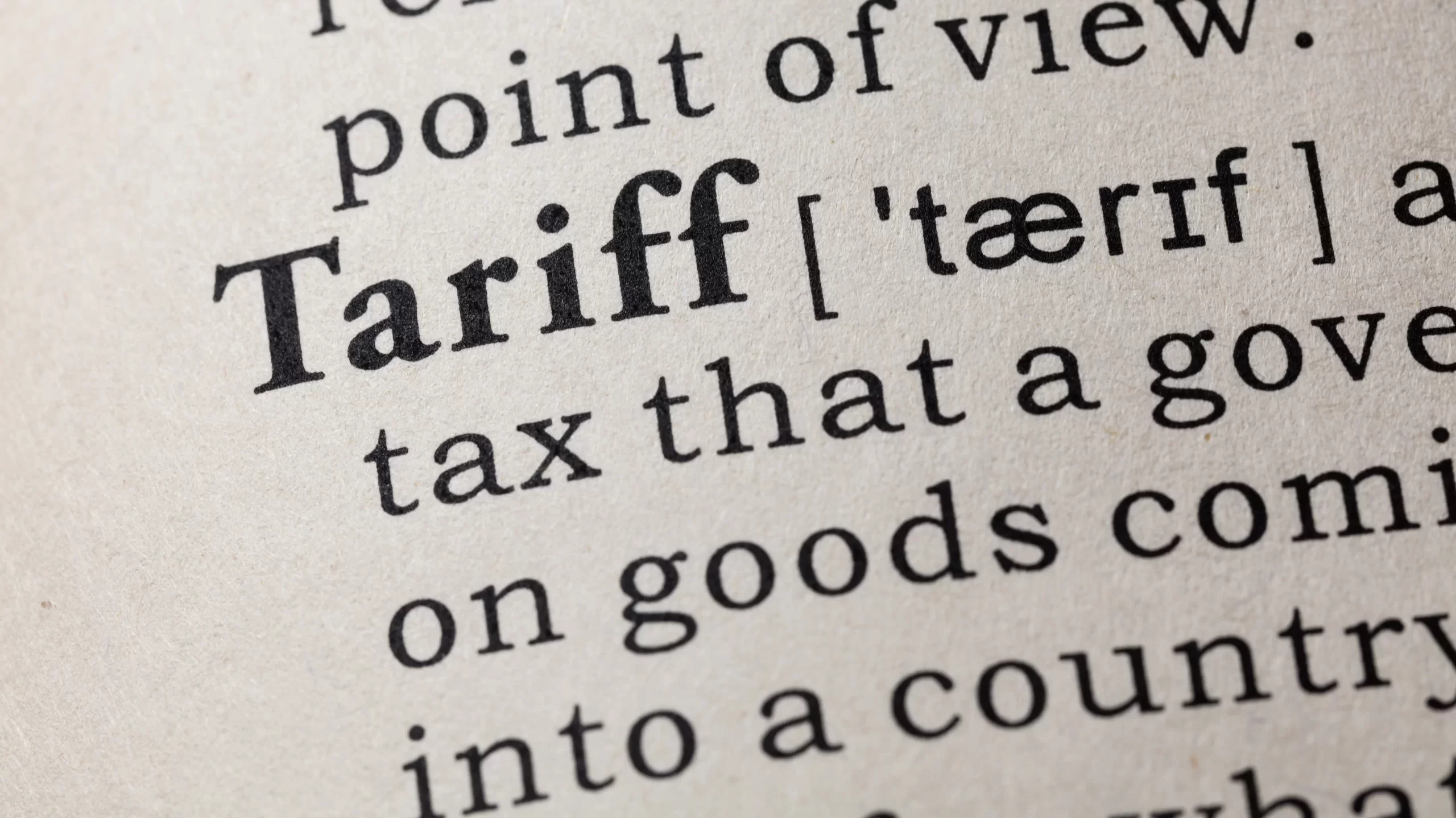|
Getting your Trinity Audio player ready...
|
A national poll released by Quinnipiac University found a slight majority of American registered voters oppose tariffs proposed by President-elect Donald Trump.
Trump has pledged to impose a 25 percent tariff on all Mexican and Canadian imports as well as tariffs on all products from China in excess of 60%.
Quinnipiac found that 51 percent of registered voters they polled opposed these measures.
While the poll also found that 52 percent of registered voters were generally optimistic regarding Trump’s second term, and 46 percent believed the economy will improve in the next six months, approval rates for Trump’s proposed tariffs were comparatively low at only 38 percent.
Trump has explained the purpose of these tariffs as promoting the production and sale of American goods and decreasing reliance on imports. Trump also wrote in a post on Truth Social that the tariffs would stay in place, “until such time as Drugs, in particular Fentanyl, and all Illegal Aliens stop this Invasion of our Country!”
Of voters polled, Republicans viewed the proposed tariffs most favorably with 76 percent in favor, 12 percent in opposition and 12 percent unsure.
Meanwhile, 89 percent of registered Democrats opposed the tariffs, seven percent were in favor and four percent were unsure.
Opposition was highest amongst voters aged 18 to 34 years old and 65 years old or older, with 54 percent of voters in both groups in opposition.
Amongst independents, 34 percent were in favor of the tariffs while 53 percent were opposed and 13 percent unsure.
Critics of Trump’s proposed tariffs say they would drive up the price of goods and could provoke retaliatory tariffs on American exports.
A study by the Peterson Institute for International Economics estimated that the increased tariffs would cost a typical American household over $2,600 a year.
Officials from Canada and Mexico have said they would consider enacting retaliatory tariffs on American goods if Trump goes through with his plan.
The U.S. Department of Agriculture estimated that following January 2018 tariffs imposed by Trump on Chinese imports, retaliatory tariffs from China cost the U.S. $25.7 billion between 2018 and 2019.
Economists at Georgia State University in 2018 reported that tariffs during Trump’s first term increased manufacturing costs by $51 billion a year.
Quinnipiac Polling Analyst Tim Malloy wrote in his analysis of the poll, “Will tariffs targeting foreign countries, intended to level the import-export playing field, end up hurting Americans at home? The numbers could suggest that’s exactly what voters fear will happen.”
Alabama’s Republican leaders have largely been supportive of Trump’s economic vision, while expressing concerns regarding new tariffs’ impacts on the costs of goods.
U.S. Sen. Tommy Tuberville R-Alabama expressed his approval of Trump’s proposed tariffs saying, “You know, President Trump, is a master—he’s a master at negotiating. You know, and he’s done that all his life. He like to use tariffs as a tool to force other countries’ hands as well as bring new jobs and manufacturing back to the United States, so I think there’s gonna be a give and take here.”
Tuberville, however, also told Politico he had concerns regarding the proposed tariffs likely increasing the price of goods, potentially to the detriment of American consumers.
“A lot of people don’t really understand tariffs sometimes are paid by the person that is importing, not the one that is exporting into your country,” Tuberville said, continuing, “So we got to be careful about that.”
Trump has repeatedly misconstrued tariffs as a tax on foreign nations and not an increase in the price of foreign goods for American consumers.
U.S. Sen. Katie Britt R-Alabama, said during a July appearance on Bloomberg Talks she supported Trump’s planned tariffs, while admitting their potential to drive up prices.
“We know that places like China, people like the Chinese Communist Party have undercut the American worker at every turn so whether it is Alabama shrimpers or steel manufacturers whether it is stealing our intellectual property what they’re doing—essentially stealing American wages and opportunity is real,” Britt said.
When asked how she’d explain to voters that prices will likely increase with Trump’s proposed tariffs, Britt said, “Well, I think you’ll see wages rise and opportunity rise as well, and as we obviously work through these things, as we work to drive down inflation, we work to create a better environment for workers, when we work to actually create higher pay for them, obviously those things take a minute but I have great confidence in the vision of President Trump and soon to be Vice President Vance.”
While Britt and Tuberville have largely shown support for Trump’s economic plan, Governor Kay Ivey has taken stronger stances in opposition to similar tariffs championed by Trump during his first term in office.
Ivey said in a July 2018 letter to then-U.S. Commerce Secretary Wilbur Ross that the state could lose roughly 4,000 jobs as a result of automotive tariffs the Trump Administration had proposed on foreign vehicles.
Ivey also said, during the March 2018 opening of Spanish auto company Truck & Wheel’s plant in Vance, that she had “serious concerns” regarding Trump’s 25 percent tariff on imported steel and 10 percent tariff on imported aluminum, which excluded Mexican and Canadian imports. Ivey said these tariffs had the potential to negatively impact Alabama jobs as well as trade partnerships.
“Alabama’s economy is driven in large measure by advanced manufacturing in automotive and aerospace firms, and both of those utilize a great deal of steel and aluminum,” Ivey said. “These tariffs could likely be a disruptive factor between Alabama and other countries, when you break up that two-way trading partnership.”
The International Trade Administration reported that last year Alabama imported $37.2 billion worth of goods. Of this amount, 42 percent came from China, Canada or Mexico.
The state’s total exports in 2023 came out to $27.4 billion, with Canada, China and Mexico being three of the state’s top five international trade partners.





















































